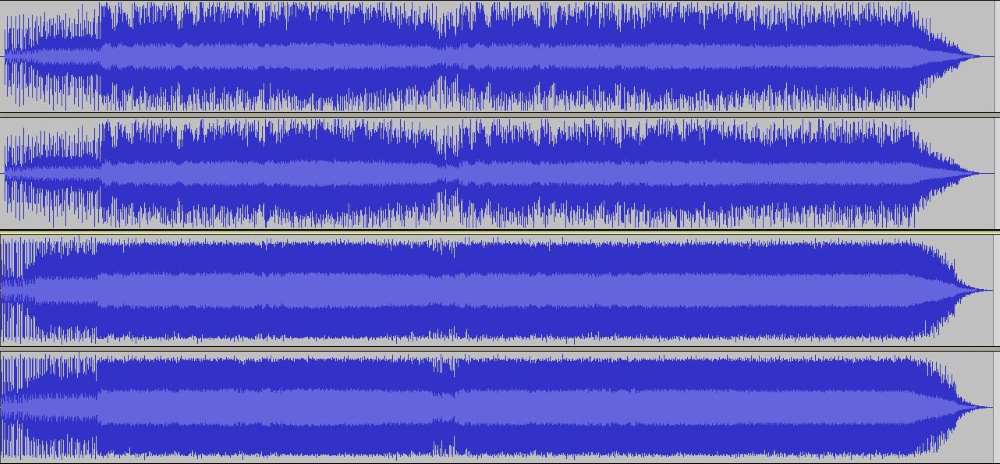Essentially, as Dax explained to me, modern music is plagued by a persistent desire to be louder. A desire that for the most part comes from those marketing and funding the music, and not by those that are creating it. There is a theory that a louder song comands more attention when it comes on the radio, and the an extension of that theory is that record labels and marketing companies push for their music to be the loudest so that it commands the most attention. The glaring issue with this push for attention lies in the dynamic range of modern music. The power of music lies in its dynamic range, which in essence refers to the disparity between the softer and louder parts of a song.
As Dax himself explains “simply speaking, dynamics refers to the volume range in a piece of music. Impact and the perception of power comes from contrast, so it follows that if everything is loud (maximum volume), then nothing is loud. Dynamics make a good song feel better and high dynamic range audio (HDR-A) is all about giving you a music experience that feels alive and tangible.
“HDR-A is not a new format, but a new concept; a new way of using common, existing formats that requires no new equipment or software. Dax Liniere has pioneered HDR-A in heavy music genres and the latest album from Dumbsaint, Panorama, in ten pieces, showcases that. It’s an expansive, alluring and crushing new angle on post-rock and post-metal. The visceral impact of HDR-A communicates the dark intention of ‘Panorama, in ten pieces.’ in vivid detail – the way the band wants you to FEEL it.
“It’s not just heavy music that can benefit from the HDR-A approach. Daft Punk’s Random Access Memories is a great example of an album with plenty of dynamics and its commercial success is a testament, in the face of pressure from ill-informed marketing departments to make things louder and louder, that artistic integrity can be rewarded and adored.”
Dax Liniere owns and runs Puzzle Factory Studios.

